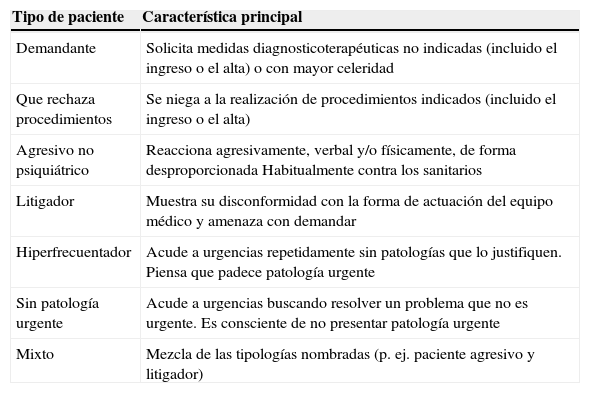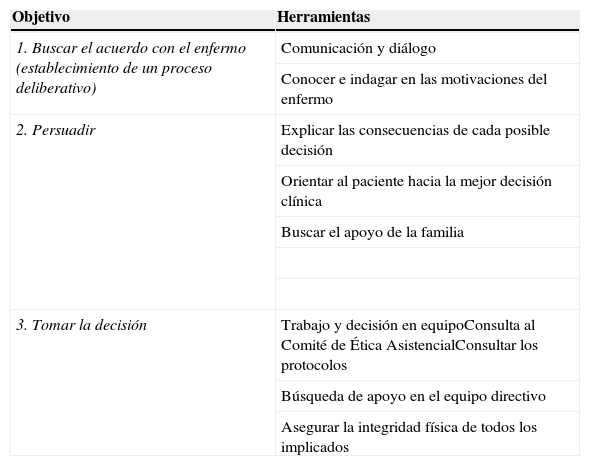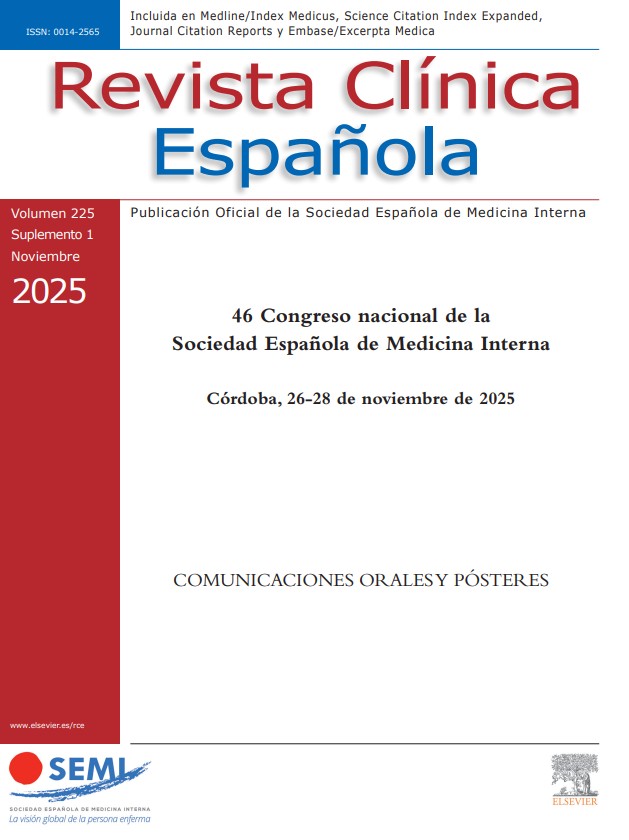El paciente conflictivo es aquel que suscita en el médico un problema (un conflicto) por su actitud y/o comportamiento. Los conflictos éticos en urgencias son frecuentes y muchos de ellos se producen con estos pacientes. Entre las tipologías más habituales de pacientes que generan conflictos personales con los sanitarios están los pacientes exageradamente demandantes, los que rechazan actuaciones médicas, los agresivos, los litigadores, los hiperfrecuentadores y los que acuden a urgencias sin patología urgente. Es posible que un paciente incluya varios de estos perfiles (paciente «mixto»). Ante su aparición, el abordaje debe ser en equipo y si es posible, estableciendo un proceso deliberativo. Si existen dudas y es posible, se debe consultar al comité de ética asistencial y se deben buscar los protocolos que haya al respecto, deseablemente institucionales. Tras ello, si se llega a una decisión difícil de tomar, hay que buscar el apoyo del equipo directivo del servicio e inclusive de la institución. Se debe reflejar todo este proceso en la historia clínica. La formación específica en Bioética y habilidades de comunicación puede ser de gran ayuda para minimizar y afrontar mejor los conflictos a largo plazo.
A conflictive patient is one who provokes a problem (a conflict) by their attitude or behavior for the physician. Ethical conflicts in emergency care are common and many of them occur with these patients. Among the most common types of patients who generate personal conflicts with health professionals are overly demanding patients, those who refuse medical interventions, those who are aggressive, litigators, excessively-recurrent users of the heath system and those who go to the emergency room without an urgent condition. A patient may include several of these profiles (“mixed” patient). When they appear, the approach should be, if possible, by a team, establishing a deliberative process. If there is doubt and when possible, the ethics committee of the institution should be consulted, seeking the protocols, this best being institutional, on the subject. After that, if the decision is difficult, support must be sought from the emergency staff and even management. The whole process should be reflected in the clinical history. Specific education in bioethics and communication skills can be of great help to minimize and cope better with long-term conflicts.
Artículo
Diríjase desde aquí a la web de la >>>FESEMI<<< e inicie sesión mediante el formulario que se encuentra en la barra superior, pulsando sobre el candado.

Una vez autentificado, en la misma web de FESEMI, en el menú superior, elija la opción deseada.

>>>FESEMI<<<









